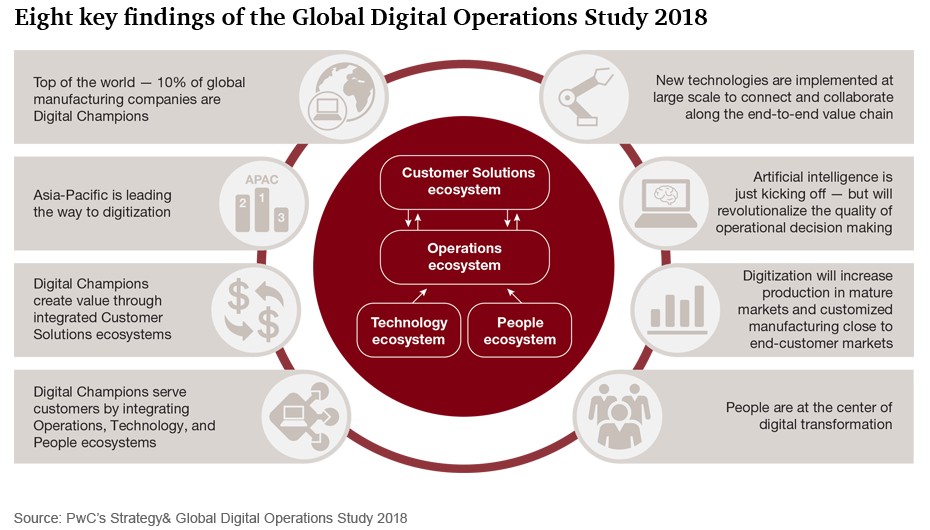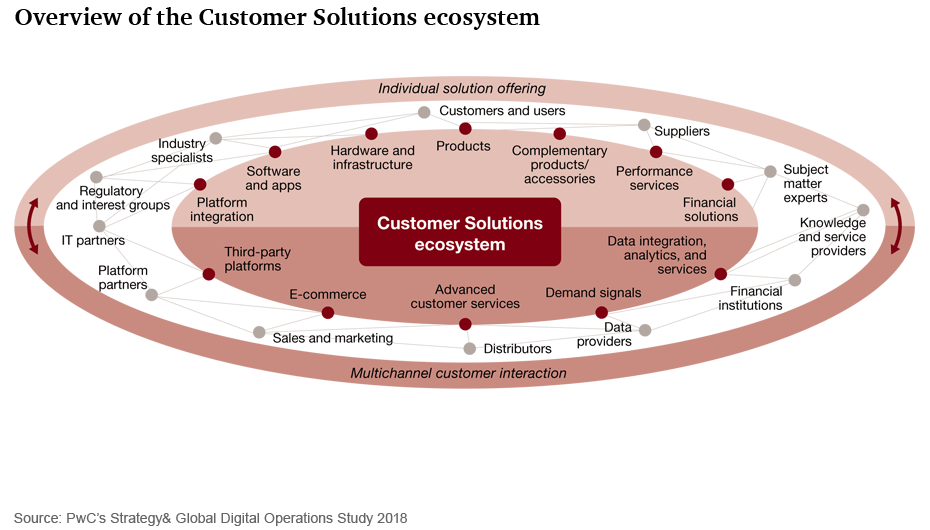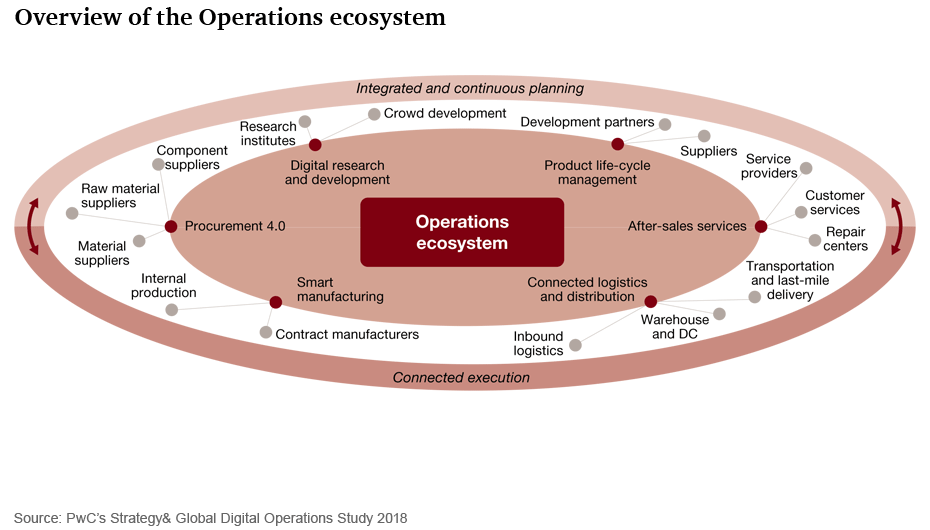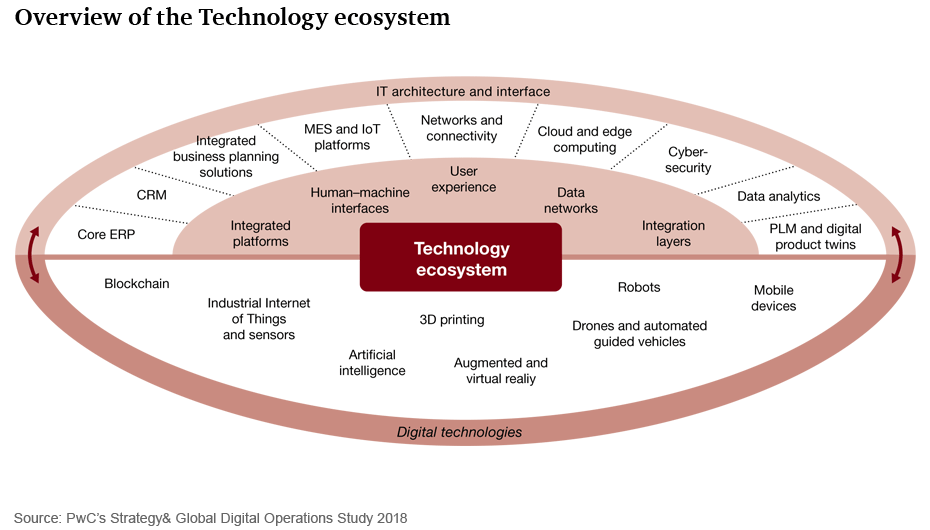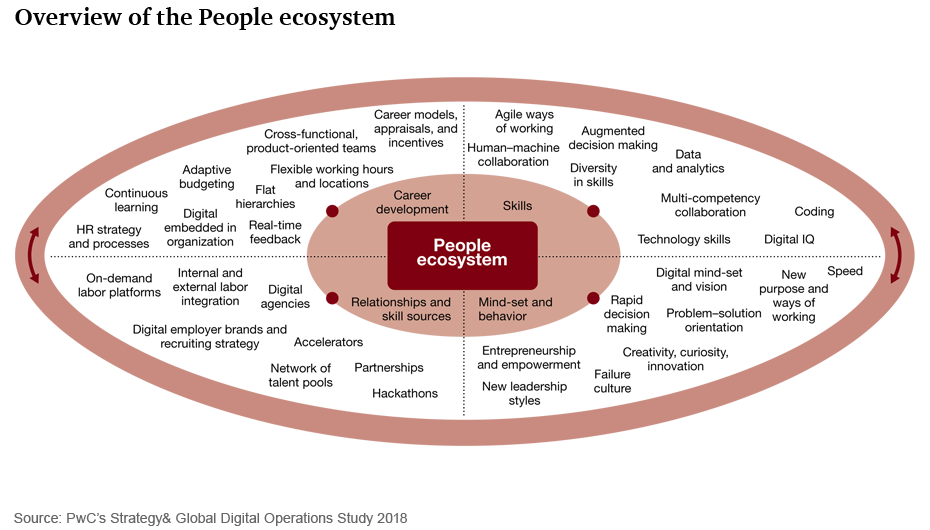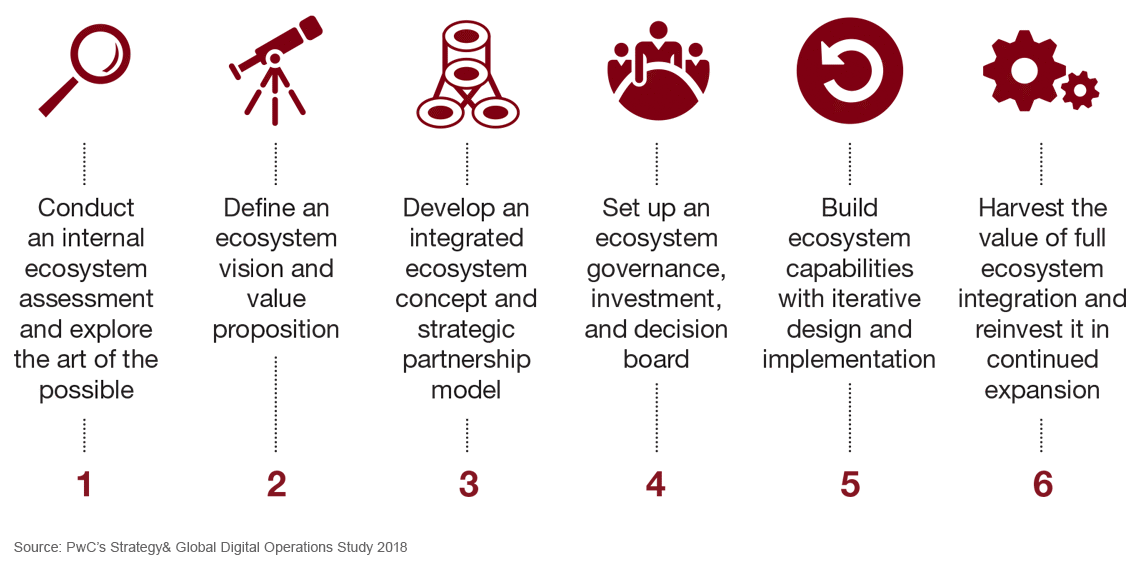{{item.title}}
{{item.text}}

Download PDF - {{item.damSize}}
{{item.text}}
Distinct from Industry 3.0, which involved the automation of single machines and processes, Industry 4.0 encompasses end-to-end digitization and data integration of the value chain: offering digital products and services, operating connected physical and virtual assets, transforming and integrating all operations and internal activities, building partnerships, and optimizing customer-facing activities.
PwC’s Strategy& interviewed 1,155 manufacturing executives in 26 countries to develop an index that ranks companies by digital operations maturity, from Digital Novices, Digital Followers, Digital Innovators to Digital Champions. Based on the study data, we were able to create a sweeping portrait of Digital Champions — companies that have taken digitization to the highest degree — and assess what it takes to be a Digital Champion through the lens of the four essential ecosystems they must master and orchestrate.
Digital Champions, are noteworthy because they view digitization in ways that are far-reaching and aggressively innovative, well beyond mere automation and networking.
They distinguish themselves through their mastery of four critical business ecosystems: Customer Solutions, Operations, Technology and People. Each of the four ecosystem layers represents a cluster of activities, some occurring inside the organization and some outside. These activities are tied together through common digital connections and practices.
Digital Champions distinguish themselves by advancing their capabilities through all four ecosystem layers, creating an organizational environment that takes the greatest advantage of the opportunities from digitization. And their skills and digital leadership translate into a privileged position for digital maturity. Only 10 percent of the companies we surveyed can claim the distinction of being called Digital Champion.
In the Customer Solutions ecosystem companies put forth the distinctive products and services that they can best offer customers or consumers. In a Digital Champion company, these activities include personalization, customization, enhanced features, improved logistics, creative revenue models and innovative designs and applications. This layer also includes external entities that the company is integrating in its solution to create additional value.
This is where Digital Champions generate customer value by integrating individualized solution offerings and multi-channel customer interactions. Digital Champions have developed a differentiating strategy and position in their ecosystem and continuously strengthen and enhance the solution offering as well as access and reach to customers across multiple channels, directly or through third parties, to establish a superior network.
The Operations ecosystem encompasses the physical activities and flows that support the customer solution offering. These might include product development, planning, sourcing, manufacturing, warehousing, logistics and services. Any external partners that are part of a company’s operations, including contract manufacturers, logistics partners and academia, are part of this ecosystem.
In Digital Champions, the operations ecosystem allows for collaboration and full transparency across the entire value chain. It connects functions and partners horizontally in product development, supply chain and services. A highly functioning operations ecosystem is especially valuable for planning and execution because it fosters takt time: the pacing of activity so that it perfectly aligns production time with customer demand.
This is an enabling ecosystem that includes IT architecture and interfaces as well as digital technologies and drives or supports improvements and breakthroughs in the Customer Solutions, Operations, and People ecosystems. It includes such pivotal technologies for Industry 4.0 as artificial intelligence, 3d printing, the Industrial Internet of Things (IIoT) and sensors, augmented and virtual reality, and robots.
The key to success for Digital Champions is a holistic approach in connecting essential technologies across the organization and with strategic partners instead of isolated implementations. Digital Champions expect to achieve significant gains in cost savings and efficiency from technology implementations, with 16 percent cost savings in the next five years, versus 10 percent for Digital Novices.
This is another enabling layer: the domain of organizational competence and culture. We have found that most companies, even those that realize the significant value of becoming Digital Champions, lack the vision, strategy and culture to support digital transformation. This ecosystem covers skills, mind-set and behavior, and relationships and skill sources, as well as career development to support digital transformation.
Only companies with a clear digital vision, strategy and culture to support digital transformation can hope to truly take advantage of it. Two-thirds of the companies we interviewed lack this vision. On the other hand, at more than 70% of Digital Champions, the leadership has a clear vision for the digital future and acts as role models for the rest of the organization. We also found that Digital Champions invest heavily in training and developing the right skills for a digital environment and have succeeded in building a digital culture.

